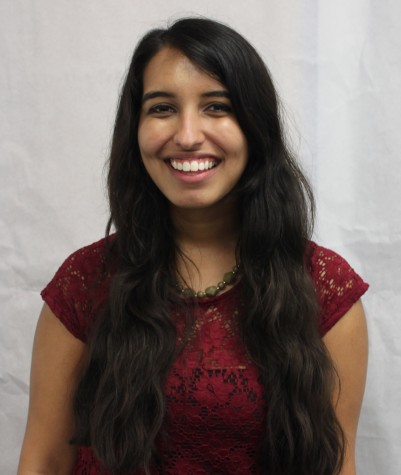Government Club Educates About People And Politics
April 8, 2016
With the controversial antics of Donald Trump dominating the media, students shift their attention from schoolwork to the upcoming presidential elections. On Tuesday afternoons, the members of the government club, a group of individuals dedicated to developing a comprehensive understanding of general politics, gather in the classroom of Walter Evarts, the Advanced Placement (AP) Psychology and AP Comparative Government teacher, to discuss politics and current events. The club considers the pluralism of its members its most valuable asset.
“We just want to have different experiences with people not just with their government, but with their school and with their culture,” Evarts said.
Evarts, as the sponsor, selected the president of the club, senior Hassan Seoudi, with this belief in mind.
“I thought I would be perfect for this role because I have a very diverse cultural background,” Seoudi said. “I’ve seen a lot and travelled a lot.”
Seoudi moved to the United States from Cairo, Egypt at the age of eight and finds joy in seeing different cultures coming together.
“The diversity in our school really makes me happy,” Seoudi said. “I love that we get to see that there were a lot of people at this school from other countries.”
Another officer of government club, junior Clementine Medjo, takes pride in her Cameroon roots and finds merit in her involvement with the club.
“I come from Africa, so I find that the culture here in America is very different,” Medjo said. “I think government club is the best way to encourage those who have different cultures to talk about what they think should be heard.”
In the future, as the club grows in size, Seoudi plans to promote the exchange of ideas among people from different areas by communicating with government members overseas.
“My aunt used to work in the government in Egypt and so I have a lot of connections to certain government officials around the world,” Seoudi said. “I’ve reached out to some of the Iraqi ambassadors to talk with us during government club over Skype.”
Seoudi has also contacted some United Nations officials about possible speaking opportunities through his charity, Masterpeace, and has received a generally positive response. However, some precautions must be taken to make sure that interaction between students and foreign officials does not put anyone involved in danger.
“We cannot record their presentations and broadcast them because we do not want to put them in peril,” Evarts said. “However, they can certainly record anything that we say and use it in their environment if they wish.”
Aside from Skype calls, the club plans to vary its activities meeting by meeting.
“There are going to be some days where it is just going to be straight up informative and other days it will be discussion-based,” Seoudi said. “Towards AP exam time, we will definitely have formal exam prep. I feel like looking at other students’ methods of studying would help.”
Though AP exams are considered a priority for many students, Seoudi does not want exam preparation to detract from the true purpose of the club.
“I do not want the AP exam prep to be mainly what people take away from this,” Seoudi said. “I want people to be able to learn more about cultures around the world and different perspectives on everything.”
Seoudi encourages anyone interested in world affairs to drop by room A2061 after school on any Tuesday to participate in discussion or merely listen to the debate.
“Come sit with us,” Seoudi said. “Eat some food. Have some fun. You do not have to be in the government class to come to the club. You just need to be interested.”



